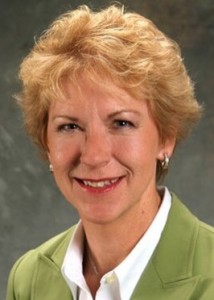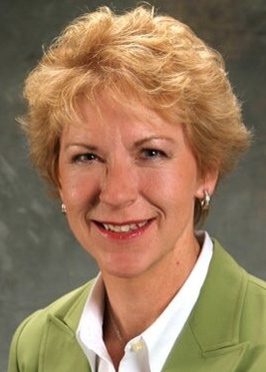The Accra Confession: a North American Newcomer’s Perspective – by Lisa L. Vander Wal
 “My brothers and sisters, do you with your acts of favoritism really believe in our glorious Lord Jesus Christ? … What good is it, my brothers and sisters, if you say you have faith but do not have works? … If a brother or sister is naked and lacks daily food, and one of you says to them, “Go in peace; keep warm and eat your fill,” and yet you do not supply their bodily needs, what is the good of that? So faith by itself, if it has no works, is dead” (James 2, selected, NRSV).
“My brothers and sisters, do you with your acts of favoritism really believe in our glorious Lord Jesus Christ? … What good is it, my brothers and sisters, if you say you have faith but do not have works? … If a brother or sister is naked and lacks daily food, and one of you says to them, “Go in peace; keep warm and eat your fill,” and yet you do not supply their bodily needs, what is the good of that? So faith by itself, if it has no works, is dead” (James 2, selected, NRSV).
I’ve come late to the party but, as they say, better late than never, right?
Although my denomination (the Reformed Church in America, or RCA) is a member of the World Communion of Reformed Churches (and formerly of the World Alliance of Reformed Churches, or WARC), it was only in 2011 that, as the RCA’s representative to the Dominican Republic for the General Assembly of the Caribbean and North American Area Council (CANAAC), I became aware of the Accra Confession. There I encountered this rather strange and alien document with its call for “covenanting for justice in the economy and the earth.”
I went home and asked my denomination’s leadership, “Why have I never heard of the Accra?” To paraphrase the answer: “We were concentrating on the Confession of Belhar, and to consider another confession seemed more than we could handle at one time.” Well, fair enough. I’m profoundly glad that we have adopted the Belhar Confession and that its principles of unity, reconciliation and (racial) justice are taking root in our psyche and practices.
Still, I now see the Accra Confession as an incredibly important and necessary addition to the consciousness of the North American church. As strange and alien as its principles may seem to a relatively small North American denomination, the Accra Confession opens our eyes to the realities outside our own geographical and cultural boundaries in ways that are biblical, theological and immensely relevant. Further, it calls the church to account for the ways in which it has, individually and corporately, consciously and unconsciously, ignored the economic and ecological injustices occurring on our own doorstep and across the globe.
The “Letter from Accra” states it well: in the face of economic injustice and ecological destruction, “How can we say that we believe that Jesus Christ is the Lord over all life, and not stand against all that denies the promise of fullness of life to the world? If Jesus Christ is not Lord over all, he is not Lord at all. That is why we find in the Bible a constant criticism of idolatry, emphasized in our Reformed tradition. To declare faith in the one true God is to reject divided loyalties between God and Mammon, dethrone the false gods of wealth and power, and turn from false promises to the true God of life. We know that this does not come easily for any of us. Yet our hope lies in confessing that the power of the resurrected Christ can overturn the idols and the modern gods that hold the world captive to injustice and ecological destruction.”
“Fullness of life” for all—that, in a nutshell, is the goal of the Accra Confession, and anything that hinders it is to be named, confessed and addressed in our actions and prayers. We, the North American church, cannot turn a blind eye to the ways in which we have ignored and been complicit in furthering the injustices which exist in our world.
At the CANAAC Consultation on the Accra Confession in March, it became clear that the RCA is by no means the only member church which has neither become aware nor endorsed the Accra Confession. Even among those member churches who have embraced it, the confession appears not to have made substantial inroads into alleviating the injustice it addresses. This reality is complicated within CANAAC by the fact that we are such a diverse regional council within the WCRC. The divide between North America and the Caribbean is great, intensified by historic realities and current effects of empire. Additionally, by virtue of being situated on islands, the Caribbean church is isolated within itself. These are clear challenges to the Accra Confession being embraced and lived out within the region. As the report of the Consultation stated, “What was acknowledged in the ‘Letter from Accra’ is as true now as it was at its creation: ‘In today’s world the divisions between the North and the South, the rich and the poor, and the powerful and the powerless, grow sharper and seek to isolate us from one another.’”
I may have come late to the party, but I am now in, fully in. I firmly believe that the Accra Confession is as timely now as it was at its inception, and the need for it is even more urgent. From this newcomer’s perspective, here are a few observations for us as we move forward.
The world does not revolve around North America (particularly the US). My family and I often travel to a destination which involves travel across Canada. Checking the weather predictions for our path, it amuses me that it appears that Canada does not have weather; the weather map stops at the border. And so it is for our awareness of what happens outside our borders with respect to gender violence, climate change, shortages of potable water, food insecurity and a host of other justice issues. When we do speak of such things, it is often with an undertone of superiority and deserving better circumstances here in the US than elsewhere.
We are complicit in injustice.As painful as it is to admit, we in North American have to answer for treaties and trade agreements which have harmed our neighbors near and far. We have contributed to trade imbalances which have benefited the US while causing greater impoverishment in the Caribbean region and beyond. The US is one of the premier destinations in human trafficking, both labor and sex trade, and while we as the church may not be directly involved, we turn a blind eye to situations occurring virtually right outside our doorsteps.
Ignorance is no excuse. Prior to attending the World Council of Churches’ “International Ecumenical Peace Convocation” in Kingston, Jamaica in 2011, I had never been to the heart of the Caribbean; nor had I previously understood at any deep level the challenges of the global church and the effects of colonization and empire. What is more, I was largely ignorant of the effects of climate change on a personal level, experienced by flesh-and-blood, fellow Christians. As I brought the lessons learned to my own denomination in various gatherings of churches, I was met with blank, “why should I care?” responses.
Well, we must care, and we must make ourselves aware of what is going on in the larger human family. With internet and social media sites proliferating, we are able to access information about what is happening throughout the globe. Whether it is the ebola virus, the persecution of Christians and Yazidis by ISIS in Iraq, or the horrendous bloodshed in Gaza, we have information instantly at our fingertips and can subsequently pray, petition legislators, send relief. My daily email feed includes a “Caribbean 360” bulletin which helps me access information pertinent to our Caribbean churches. As the church of Christ, we are called to reach out to our neighbors and to those who suffer injustice, wherever that injustice may be found.
The survival of the church depends upon how we care for those who suffer. I am convinced that the church as we know it will continue to decline as long as we neglect those who suffer political, social, economic and ecological injustice. As the mainline churches in North America suffer decline, the tendency is to hunker down, pare budgets, concentrate on survival. But recent church analysis suggests that the churches who look outside of themselves and seek to serve the wider world are the ones who are thriving and vibrant. Yes, it is Christ’s church and it is the Holy Spirit who gives it life, but the Holy Spirit will work in the world in spite of us when we fail to “do justice, and to love kindness, and to walk humbly with your God” (Micah 6:8, NRSV). As the James 2 quote reminds us, without attending to those in need, our faith is lifeless and without effect.
As I write this, I sit beside a flower patch in which a hummingbird feeds. Although the patch is vast, large enough to provide nourishment for many birds, this lone bird goes on the attack whenever another approaches. He (or she?) wants it all for him(her)self.
We as the church are called to do better. May the Holy Spirit and the principles of the Accra Confession lead the way.
Lisa VanderWal is a Minister of Word and Sacrament in the Reformed Church in America, serving a church in Schenectady, NY. She is a Past President of the General Synod and currently serves as Convener of the Steering Committee of the Caribbean and North America Area Council of the World Communion of Reformed Churches.

